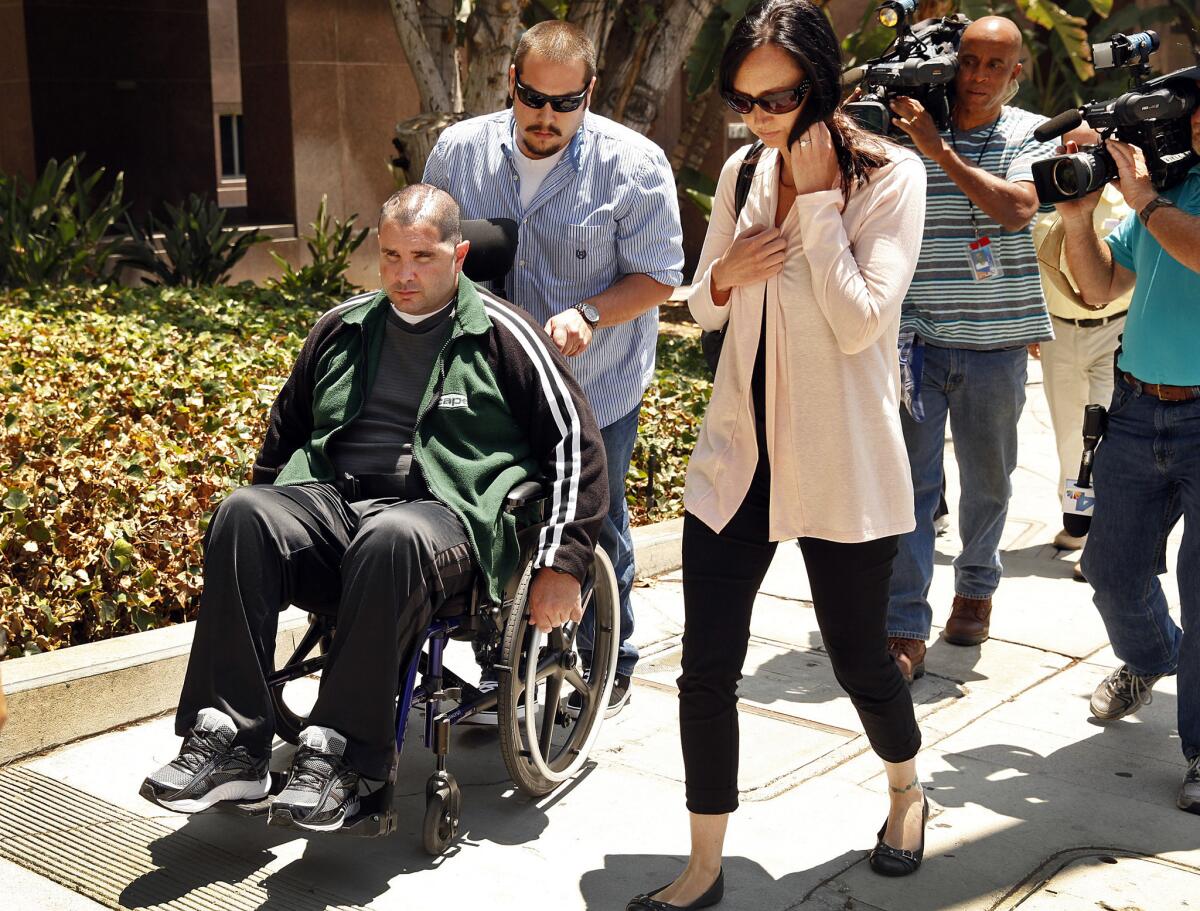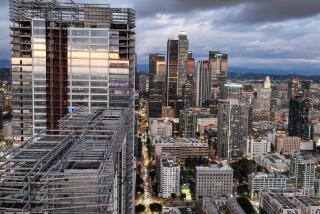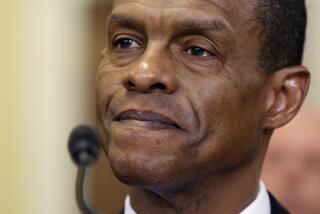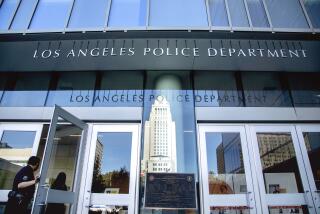Dodgers’ security chief quit after cuts in LAPD officers

The head of security for the Dodgers left the organization for a year in part because he disagreed with the team’s decision to reduce the number of uniformed off-duty officers at games, according to court testimony Thursday.
It’s a subject that lies at the heart of the civil trial that pits beating victim Bryan Stow against the Los Angeles Dodgers and former owner Frank McCourt. Although Stow’s attackers pleaded guilty, his lawsuit contends that inadequate security and lighting created the backdrop for his assault.
For years, private security at Dodger Stadium has been divided into three groups: off-duty Los Angeles police officers who serve in uniform, off-duty law enforcement officers — referred to as LEOs — who wear polo shirts, and non-sworn guards who carry a state-issued license.
Beginning in 2009, the Dodgers decided to employ fewer off-duty LAPD officers and more LEOs. The former were paid $50 an hour; the latter were paid $30 an hour.
Shahram Ariane, who at the time was the team’s director of security and guest services, said he challenged the transition.
“My position was that people behave differently when dealing with a uniformed police officer — albeit off-duty but unbeknownst to them — as opposed to a person in a white polo shirt with the word ‘security’ on his back,” he testified in a downtown Los Angeles courtroom.
Hired by the Dodgers in 2005, Ariane left in 2010. In March 2011, while working as the director of campus safety for the Claremont Colleges, he returned to the Dodgers as a consultant. He reclaimed his original title earlier this year.
Ariane said McCourt had no part in the decision to decrease uniformed officers. He said the decision was made by Ray Maytorena, a former Secret Service agent who had overseen security operations for two years before being fired.
Ariane testified that he was never ordered to downsize or cut his expenses and often overspent with no repercussions. He also said the organization had improved its security infrastructure over the years, adding surveillance cameras and more golf carts which had a “tremendous impact” on curbing drinking in the parking lots. According to budget reports, the Dodgers increased spending on security during Ariane’s initial tenure.
Stow’s attorneys, however, have argued that the quality of security decreased as did the crime “deterrent effect” that comes with having officers in uniform.
On the night that Stow, a San Francisco Giants fan, was beaten, Dodger Stadium’s private security consisted of 124 guards, 59 LEOs and 19 uniformed off-duty police officers.
The two LEOs assigned to the parking lot where the attack took place were in a different area at the time.
According to security records, Brian Hill and Brian Hines were to patrol Parking Lot 2 before and after the game that day. The partners testified that during the game, their assignment was to monitor the left-field concourse inside the stadium.
The last pitch was about 8 p.m. Hines testified that he and Hill monitored the crowd leaving the stadium before retrieving their golf cart and heading toward Lot 2. Hines, a parole agent for the California Department of Corrections and Rehabilitation, said that based on a pre-game briefing, he believed on-duty LAPD officers were also deployed in the parking lots.
The two men were in a different parking lot when someone notified them of the assault. Hill, an officer with the Los Angeles County Sheriff’s Department, later wrote in a memo to his supervisor that he first heard about the attack at 8:30 p.m.
Previous witnesses have testified that they saw no sign of Dodgers security or the LAPD in Lot 2 when Stow was assaulted by Louie Sanchez and Marvin Norwood, both of Rialto.
Natasha Lagano testified Wednesday that she called 911 after her parents saw Stow on the ground. That phone call was made about 8:25 p.m. Her parents testified that it took security about 15 minutes to arrive after Stow was punched and kicked.
Hill and Hines said they found Stow on his back surrounded by three friends who appeared to be intoxicated.
Ariane defended the guards and said there was no set time when they were required to be in Lot 2 and that it was left to their discretion. The two officers were “just one tool in the tool chest,” he said. “It wasn’t the only presence we had out there.”
Before opening day, Ariane said, he had meetings with the LAPD, which had an extensive, detailed plan for March 31, 2011. In addition to a presence from the FBI, California Highway Patrol and the Los Angeles Fire Department, Ariane said, he believed the LAPD was to have about 200 on-duty officers outside the stadium, including a large contingent in the parking lots.
“It was a tremendous comfort point for me,” he said.
More to Read
Start your day right
Sign up for Essential California for news, features and recommendations from the L.A. Times and beyond in your inbox six days a week.
You may occasionally receive promotional content from the Los Angeles Times.







